Background
Winifred Emma Sewell was born on August 12, 1917, in Newport, Washington, United States. She was a daughter of Harold Sewell and Grace Sewell.


1979 - 2002
Winifred Sewell served as an honorary president of the American Association of Colleges of Pharmacy. In 1979-1980, she was a Chairman of the Libraries/Educational Resources Section. In 1996-2002, she was a Co-Chair of the Committee on Basic Resources for Pharmaceutical Education.
New York, NY 10027, United States
Winifred Sewell earned a Master of Library Science from Columbia University.
Pullman, WA, United States
Winifred Sewell earned a Bachelor of Science from Washington State University.
Winifred Sewell served as an honorary president of the American Association of Colleges of Pharmacy. In 1979-1980, she was a Chairman of the Libraries/Educational Resources Section. In 1996-2002, she was a Co-Chair of the Committee on Basic Resources for Pharmaceutical Education.
Winifred Sewell served as the president of the Special Libraries Association in 1960-1961.
Winifred Sewell served as the president of the Drug Information Association in 1970-1971.
Winifred Sewell, editor, educator, librarian, author.
In 1979-1980, Winifred Sewell was a Chairman of the Public Health and Health Administration Libraries Section and the Recertification Committee; in 1980-1981 - of the Medical Library Education Section of the Medical Library Association.
In 1974-1975, Winifred Sewell was a Chairman of the Special Interest Group/Classification Research of the American Society for Information Science (now the American Society for Information Science and Technology).











editor educator Librarian author
Winifred Emma Sewell was born on August 12, 1917, in Newport, Washington, United States. She was a daughter of Harold Sewell and Grace Sewell.
Winifred Sewell was educated at Washington State University, where she earned her Bachelor of Science in 1938 before attending Columbia University for her master's degree in library science, which she received in 1940; she also attended graduate-level classes at universities in New York in 1940-1946. In 1979, the Philadelphia College of Pharmacy and Science conferred on Winifred Sewell the honorary degree of doctor of science.
Winifred Sewell's first position was as a department librarian at Columbia University in 1938-1942. Her position as a librarian for Welcome Research Laboratories in 1942-1946 led to a job at the Squibb Institute for Medical Research, where she was a senior librarian until 1961. At the National Library of Medicine in Bethesda, Maryland, she was a subject-heading specialist and deputy chief of the Bibliographic Services division in 1961-1965 and headed the drug literature program from 1965 to 1970. She had served on a 1958 International Federation of Pharmacy's pharmaceutical abstract commission, a 1959 Columbia University School of Library Science summer session as an instructor, a 1965 National Academy of Sciences committee on modem methods of handling chemical information, and a 1966 State Department library exchange program with the Soviet Union.
The remainder of Sewell's career was spent at the University of Maryland's School of Pharmacy, where she was an adjunct assistant professor of pharmacy in 1970-1985; and adjunct lecturer of the University of Maryland College of Library and Information Services (now the University of Maryland College of Information Studies) in 1969-1992. In 1970-2002, Winifred Swell was a consultant for many industrial, academic, and government groups, including Textwise, United States Pharmacopeia, Welch Medical Library project on Online Mendelian Inheritance of Man, Southeastern/Atlantic Regional Medical Library Services project on Bibliometric Study of Molecular Biology, National Association of Hospital Development, Federal Library Committee, National Health Planning Information Center, Sheppard, and Enoch Pratt Hospitals, Biospherics.
She was the author of three books: Using MeSH for Effective Searching: A Programmed Guide (1975), which she wrote with Mere Harrison, Guide to Drug Information (1976), and Micromanual for Casual Users of National Library of Medicine Databases (1986), the last written with Sandra D. Teitelbaum. Sewell was also an editor of the journal Unlisted Drugs in 1949-1959 and 1962-1964, and editor of the Gale Information Guides: Health Affairs series in 1972-1980. She was a member of the editorial boards of Drug Information Journal, 1971- 1984, and Bulletin of the Medical Library Association, 1974-1977.
Winifred Sewell provided stipends for librarians to attend the annual meetings of the American Association of Colleges of Pharmacy (1997 through 2002) and the American Public Health Association (2001 and 2002). She established the Grace and Harold Sewell Memorial Trust Fund to administer these grants and, in typical fashion, personally selected its Board of Trustees to represent both the library and client communities. In 2001, Sewell funded two clinic workers to attend the American Public Health Association annual meeting to present a report on their HIV health-information outreach project.
Winifred Sewell was made a Fellow of Modern Language Association in 1978, and the American Association for the Advancement of Science conferred a similar honor on her in 1995. In 1998, she was inducted into the Special Libraries Association Hall of Fame and, a year later, served as honorary president of the American Association of Colleges of Pharmacy during its centennial; she was the first woman and first librarian so honored. In 1999, the Special Libraries Association created the Winifred Sewell Prize for Innovation in Information Technologies in Biomedical and Life Sciences Librarianship.
Winifred Sewell believed librarians who work for biomedical scientists and practitioners must learn and understand the practices and needs of their clientele subjectively rather than just intellectually from reading or observing from the library perspective. A person's degree or professional affiliation did not limit Sewell's view of his or her role in health information delivery. She envisioned a future in which community health workers, as well as librarians and other practitioners, would be considered integral members of the health team.
Quotations: "Librarians should be advocates for end users to the traditional library staff, assisting the latter in identifying with the clients and gaining a "We" rather than a "They" perspective."
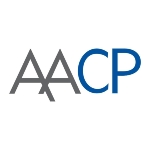
Winifred Sewell served as an honorary president of the American Association of Colleges of Pharmacy. In 1979-1980, she was a Chairman of the Libraries/Educational Resources Section. In 1996-2002, she was a Co-Chair of the Committee on Basic Resources for Pharmaceutical Education.
American Association of Colleges of Pharmacy , United States
1979 - 2002
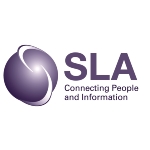
Winifred Sewell served as the president of the Special Libraries Association in 1960-1961.
Special Libraries Association , United States
1960 - 1961
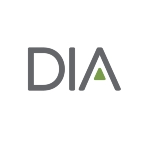
Winifred Sewell served as the president of the Drug Information Association in 1970-1971.
Drug Information Association , United States
1970 - 1971
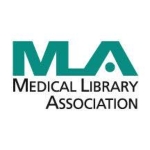
In 1979-1980, Winifred Sewell was a Chairman of the Public Health and Health Administration Libraries Section and the Recertification Committee; in 1980-1981 - of the Medical Library Education Section of the Medical Library Association. She spearheaded a Core Public Health Journals List for MLA after successfully starting one on drugs for the American Pharmacy Association.
Medical Library Association , United States
1979 - 1981
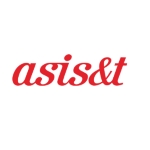
In 1974-1975, Winifred Sewell was a Chairman of the Special Interest Group/Classification Research of the American Society for Information Science (now the American Society for Information Science and Technology).
American Society for Information Science and Technology , United States
1974 - 1975
Winifred Sewell was a "master cultivator." Her attention to preparing and harvesting her land was mirrored in her attention to preparing, improving, and refining the skills of her library school students, many of whom became her research partners.
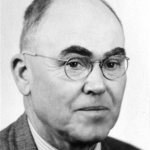
Harold Sewell was born on January 3, 1892, in Bremer county, Iowa. He moved to Washington with his parents in 1906 and lived in Pullman where he attended the preparatory department of Washington State College. He received a Bachelor of Science in civil engineering from Washington State College in 1911 and did graduate work and teaching there the next year, receiving a Bachelor of Arts in mathematics in 1912.
In 1914-1918, he was a County Engineer rode the Idaho & Washington Northern Railroad. He formed his own engineering and construction company, the Interstate Engineering & Construction Co., and built roads, logging flumes, logging railroads, and bridges, including the Ione Bridge which he designed in 1932. Prior to World War II, Harold served on the School Board, and also contracted for a variety of projects with the Rural Electrification Administration. During the war, he served as a Chief Civilian Engineer at the Farragut Naval Base on Pend Oreille Lake. In 1942, the H.A. Sewell Consulting and Contracting Engineer firm opened its doors but was soon to be renamed H.A.& J.A. Sewell Consulting & Contracting Engineers, as his son, Jim Sewell, joined him in 1945.
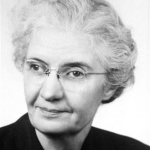
Grace Sewell was born in 1894, on a farm in southwestern Rock County, Minnesota. After seven years in the country schoolhouse, she graduated three times in Jasper, Minnesota, where her father had retired. She played basketball in school and started playing piano and organ for Sunday School in 1906. When Macalester College in St. Paul, Minnesota, had a grand enrollment of 308 students, she was studying music and business. But in 1912 the call of the Great Northwest became irresistible and Grace arrived in Newport on June 30. Soon after Grace arrived, a gentleman by the name of Harold Sewell came to town and met Grace at a Halloween party in the Methodist Church, and later they married.
Grace Sewell worked as a stenographer for Pend Oreille County Abstract Co. In 1955, she retired from her active schedule of organ and piano playing for the Hope Congregational Church to have more time to travel with her husband. A fifty-year member of Eastern Star, she had been an organist there for over thirty years. But as might be expected Grace Sewell couldn't give up playing completely. She still continued as accompanist for the United Church of Christ "Choraleers." She was also a member of the P.E.O. sisterhood, a national women's organization that provides scholarships, loans, and international Peace Scholarships for college women.
